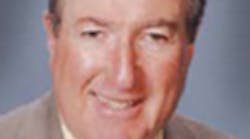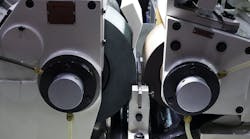Barack Obama won the Presidency with a significant mandate for change. But what does “change” mean? How is he likely to govern? What does he plan to change first?
No one knows, except President-Elect Obama, and he has yet to lay out a clear agenda for action.
There are, however, a number of legislative objectives articulated by the Democratic Congress and by key Democratic constituencies. They may give us an idea of what’s in store.
One of the major components of the Democratic coalition is organized labor, and Labor’s top priority seems to be the so-called “card check” bill.
“Card Check” union organizing legislation is expected to be among the first major proposals to be voted upon in 2009.
The legislation proposed during this Congress mandates that a company recognize a union if a majority of the company’s workers sign cards indicating their desire to become unionized.
The current process, which requires a secret ballot election, overseen by federal agency officials, would be overturned by this proposal.
It is not hard to see why unions favor its quick passage. Union leaders have stated that, if the bill were to be enacted, they believe it would bring an additional 60 million American jobs into the unionized fold.
In 2007, this bill passed the House of Representatives but was unable to achieve the 60 votes necessary to bring it to a vote in the Senate.
President-Elect Obama voted in favor of the bill during Senate consideration, and stated on this year’s campaign trail that he would sign it if it were presented to him as President. The bill is expected to pass the House of Representatives early in 2009, and the question again will be the Senate and its 60-vote requirement for passage.
Taxes, of course, will be high on the agenda.
Few expect that President Obama will be able to fulfill his promise of a tax cut for 95 percent of Americans. There is simply not the available revenue to offset the hundreds of billions of dollars that such a proposal would entail.
President-Elect Obama does seem intent on raising the capital gains tax from its current 15 percent to approximately 28 percent on the grounds of fairness, and it is likely that he has the votes to pass this measure.
No matter whether this increase leads to higher or lower revenues, depending on whose economic models he believes, Obama seems intent on going ahead.
Similarly, the so-called “death tax” will be a pressing issue.
It is scheduled to go to zero in 2010 before returning to 55 percent in 2011. This is the famous “throw mama from the train” provision of the tax code created by the 10-year budgeting cycle passed in 2001 — back when Bush was a popular President.
Obviously, there will pressure to pass some sort of compromise legislation, a law that would avoid the tens of billions of dollars in revenue loss that would result if nothing is enacted by 2010.
Remember, this would occur during a period with a budget deficit approaching $1 trillion. The most likely compromise is somewhere in the middle, with a 40 percent death tax and a $3.5 million exemption.
The major tax issue, however, will revolve around how to raise additions revenues.
Will businesses be hit and, if so, how hard?
The U.S. corporate income tax is already the second highest in the industrialized world.
Will it be raised further in a desperate attempt to raise more revenue? Or, will it be lowered, despite the likely revenue loss?
Likewise, what about small businesses? Will so-called “S-Corps” be exempted from the increase in the top rate of the tax code from the current 35 percent to 39 percent or higher?
The new Treasury Secretary will have a lot to say on this critical issue.
Many small manufacturers are organized as “S-Corps,” and many too are family-owned.
So the decisions made by Barack Obama, his close advisors, and the new, heavily Democratic Congress are of more than mere academic interest.
It would be great to have a clear idea of what the likely policy paths will be, and what the circumstances will be that will affect policy.
But the past few months have shown that, as Yogi Berra once said: “Predictions are difficult, especially about the future.”







